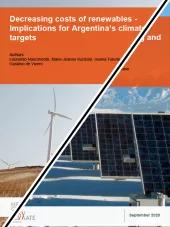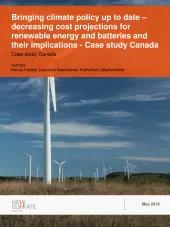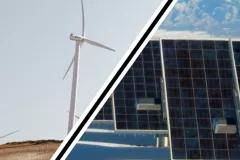The Paris Agreement foresees regular revisions of the NDCs following a periodic global stocktake, with the objective to take stock of the implementation of the Paris Agreement and increase ambition over time. These NDC revisions should be informed by up to date information on the country circumstances, e.g. costs of zero or low-carbon technologies.
Key mitigation technologies, i.e. renewable power generation and battery technologies, are substantially cheaper now than projected in 2015. Solar PV, onshore wind and lithium battery technologies are also expected to have faster cost reductions up to 2030 than assumed in the preparation of NDCs. If the investments planned for the NDCs were maintained and savings to be reinvested in the same technologies, this cost reduction could lead to a higher uptake of renewables and allow for more ambitious renewable targets. This could support Parties to the Paris Agreement to strengthen their future NDC submissions.
Together with Fraunhofer ISI, NewClimate Institute investigated the potential impact of these investment cost reductions for three countries: Argentina, Mexico, and Indonesia. This analysis was funded by the German Federal Ministry for the Environment, Nature Conservation and Nuclear Safety.





